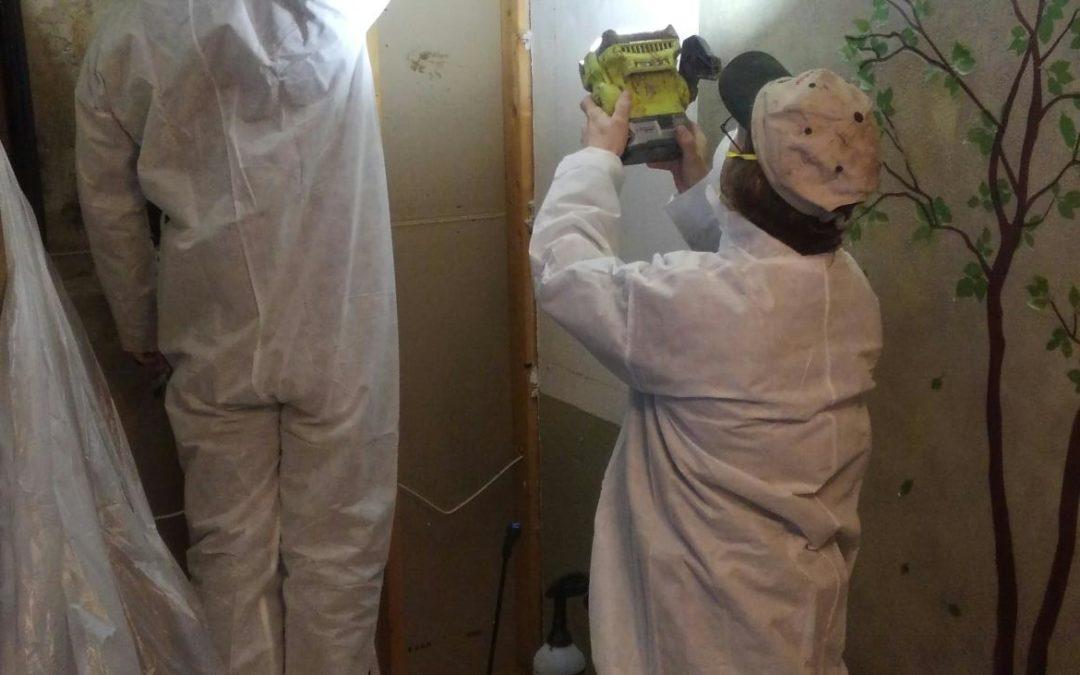by AdminGreen | Oct 11, 2018 | Uncategorized
It’s a scenario that every homeowner dreads. Maybe you’ve caught glimpses of it in those seldom visited corners, or behind fixtures and appliances. Perhaps you’ve been noticing a strange smell in certain rooms or areas. Maybe you’ve started to develop troubling...
by AdminGreen | Dec 15, 2016 | Uncategorized
Black mold is a type of mold also known by its scientific name: Stachybotrys chartarum. It’s a popular term that comes up when people talk about mold and health concerns because it is known to produce some unwanted health consequences. Black Mold Health Consequences...
by AdminGreen | Oct 27, 2015 | Uncategorized
Vinegar may be suitable for minor mold issues Removing mold with vinegar is a common method here in Washington State. While vinegar can be used to help eliminate mold in small areas, it can be a labor extensive process that requires a lot of scrubbing. Before you...
by AdminGreen | Dec 29, 2014 | Uncategorized
Have you experienced mold in your home? If so, there is a chance that it can be damaging to your health. According to MedicineNet, mold can live on many different materials in your home including shower stalls, wood, fiberboard, and gypsum board. Mold thrives in...
by AdminGreen | Jun 5, 2012 | Uncategorized
Can you paint over the mold to clean the wall and keep the mold from spreading? Never paint over the mold. You create more problems and more costs to remove the mold. EPA states not to paint over the mold. First, the paint will not stick to the mold completely and the...
by AdminGreen | Jun 5, 2012 | Uncategorized
What steps can be taken to prevent mold from forming? Moisture control is the key element in mold control. When water leaks or spills occur inside your property be sure to act quickly. Drying materials that are wet or damp in the first 24 to 48 hours after a leak is a...
by AdminGreen | Mar 27, 2012 | Uncategorized
We are especially interested in one presenter’s comments during the public ASHRAE session. Joseph Lstiburek, Ph.D., P.Eng., of Building Science Corp., Westford, Mass., has entitled his presentation, “What Happened? Why Mold and Why Now?” As quoted elsewhere in this...
by AdminGreen | Feb 23, 2012 | Uncategorized
Typically “fresh” air contains more mold spores than pollen grains. Mold and mold spores are in the air year-round, indoors and out. Mold and fungi reproduce by giving off huge numbers of mold spores into the air, similar to plants releasing pollen. When mold spores...

by AdminGreen | Feb 20, 2012 | Uncategorized
Mold spores are tiny bacteria less than 4 microns in size – so small that as many as 250,000 spores can fit on a pin head and a person can inhale as many as 750,000 of these spores per minute. The body has natural defense filtering systems – such as mucous lining,...
by AdminGreen | Apr 1, 2011 | Uncategorized
Living with Mold Linked to Severe Asthma: Study September 8th, 2010 A new study highlights the risk of household mold, which may increase the risk of severe asthma attacks among people with certain genes. The study was published online last month in the American...



